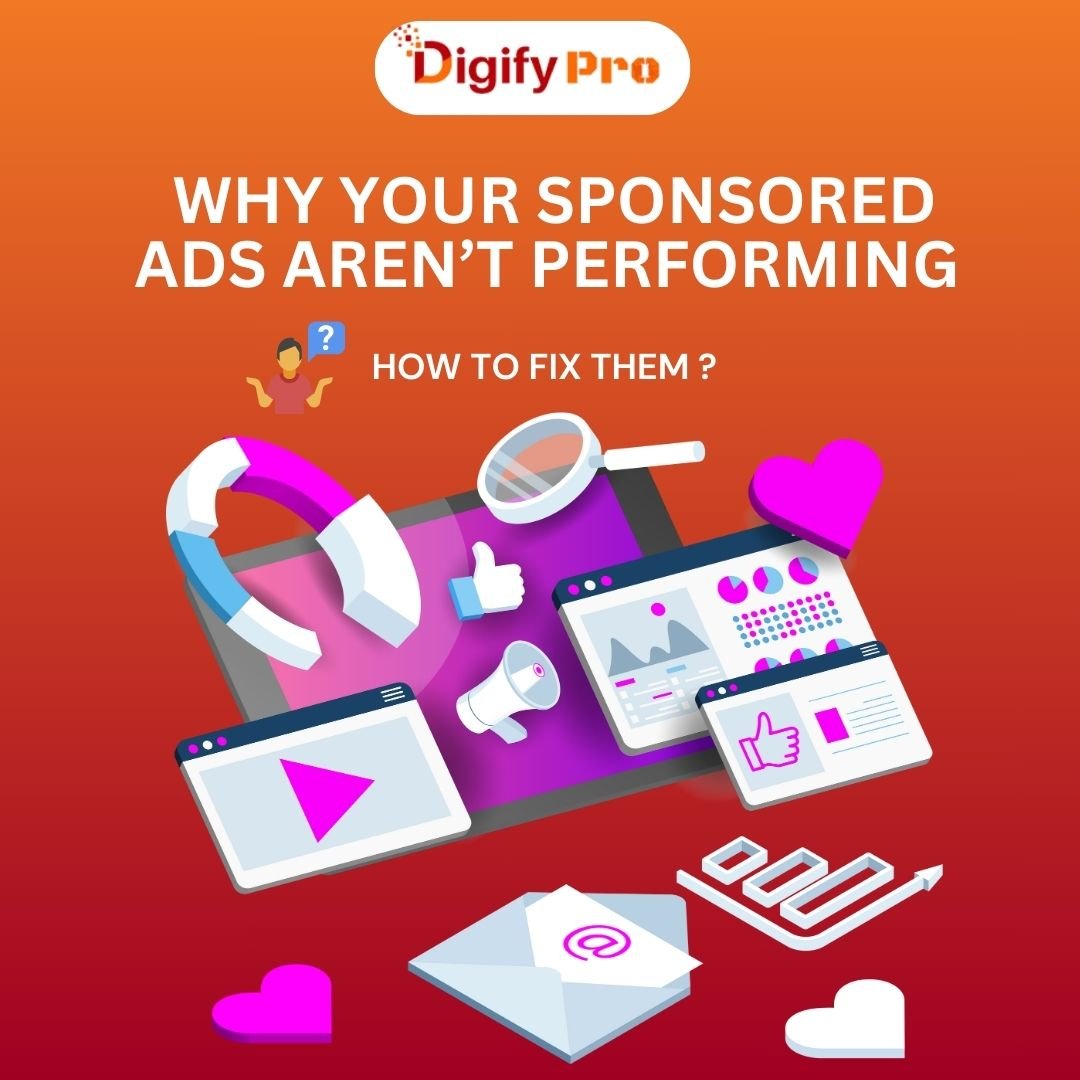1. Poor Audience Targeting
One of the main culprits behind ineffective sponsored ads is poor targeting. Even the most creative ad will fail if it doesn’t reach the right audience. Are your ads reaching people who are likely to buy your product or service? If not, your money is being wasted.

How to Fix It:
- Use audience insights to define detailed buyer personas.
- Leverage platform tools (like Facebook’s Lookalike Audiences or Google Ads’ In-Market Segments).
- Test different audience segments to find the sweet spot.
2. Weak Ad Copy and Creatives
In digital advertising, first impressions are everything. If your ad copy is dull or your visuals are uninspiring, users will scroll past without a second glance. A weak call-to-action (CTA) can also lead to poor conversion rates. How to Fix It:
- Write clear, benefit-driven headlines.
- Use high-quality visuals or videos.
- Experiment with CTAs that create urgency or offer value.
3. Lack of Landing Page Optimization
Driving traffic through sponsored ads is just the first step. If your landing page doesn’t match the promise of your ad, or if it’s slow, cluttered, or confusing, users will bounce. How to Fix It:
- Make sure your landing page aligns with the ad in terms of content and tone.
- Optimize for mobile devices.
- Use A/B testing to improve layout, copy, and CTA placement.
4. Not Tracking the Right Metrics
Measuring success goes beyond impressions and clicks. Many advertisers focus on vanity metrics rather than key performance indicators (KPIs) that reflect real business outcomes. How to Fix It:
- Track conversions, cost per acquisition (CPA), and return on ad spend (ROAS).
- Use UTM parameters to track ad performance in Google Analytics.
- Continuously optimize based on the data.
5. Budget Mismanagement
Spending too little can mean your ads don’t get seen; spending too much without a strategy can drain your resources. Many businesses fail to allocate budget correctly or spread it too thin across multiple platforms. How to Fix It:
- Start with a test budget and gradually increase based on performance.
- Focus spending on high-performing channels and ad sets.
- Use automated bidding strategies to optimize ad spend.
6. No Clear Digital Advertising Strategy

A lack of cohesive planning is often the root cause of underperforming ads. Without a strong digital advertising strategy, campaigns can become disjointed and ineffective.
How to Fix It:
- Define your goals: Awareness, traffic, leads, or sales?
- Choose platforms that best match your audience and objectives.
- Align all ad components (copy, creative, targeting, budget) with your overarching business goals.
7. Ignoring Retargeting
Did you know that most users don’t convert on their first visit? Retargeting helps bring back those visitors who showed interest but didn’t convert.
How to Fix It:
- Set up retargeting ads using pixel data or CRM lists.
- Customize messages to reflect past behavior (e.g., viewed a product or visited a pricing page).
- Use dynamic retargeting for e-commerce businesses to showcase abandoned cart items.
8. Inconsistent Testing and Optimization
Set-it-and-forget-it doesn’t work with digital ads. Without regular testing and adjustments, your campaigns will quickly become outdated or ineffective.
How to Fix It:
- Run A/B tests on headlines, images, CTA buttons, and targeting.
- Monitor your campaigns weekly and adjust as needed.
- Learn from low-performing ads to improve future content.
Final Thoughts
If your sponsored ads are not yielding the desired results, it’s a signal to reevaluate your approach. By identifying the pain points—whether it’s targeting, creative, landing pages, or budget—and adopting a robust digital advertising strategy, you can significantly improve your performance and ROI.
Remember: the digital ad space is competitive. To stand out, your ads need to be smart, strategic, and constantly evolving.



